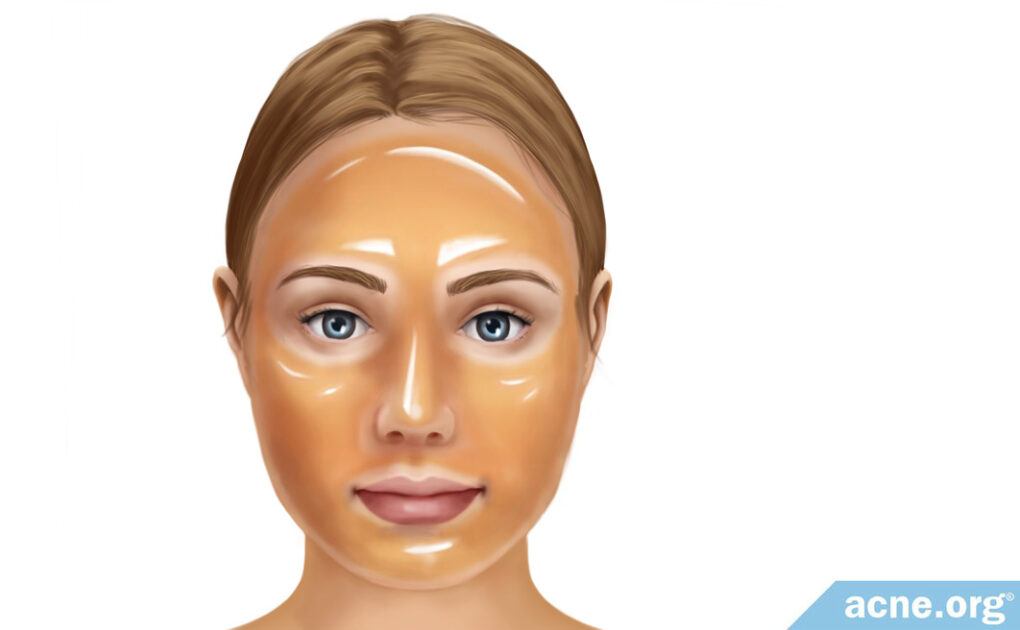Research Is Limited. It Might Help a Bit, But Don’t Expect Very Much.

The Essential Info
Honey has natural antibiotic, anti-inflammatory, antioxidant, and wound-healing properties. Honey is also a safe, natural substance that comes with few side effects. While this makes it an appealing alternative to those who do not wish to experience the discomfort that traditional acne treatments cause, from what we can tell thus far, it may not work for acne.
The one study that has been performed that looks at honey as an acne treatment indicates that it is not effective. However, the study looks at honey-containing soap and not honey masks. So until we get more data, we won’t know for sure.
The Bottom Line: If you don’t suffer with much acne and want to try a honey mask for fun, feel free. However, if you are bothered by regular breakouts, it’s probably best to look to other treatments instead of honey. Having said that, if you do see honey in an ingredient list of any skincare product, it should be perfectly fine.

The Science
- What Are the Components of Honey and How Might It Be Beneficial for Acne?
- One Study Gives Us Weak Evidence
- Side Effects
- How to Apply a Honey Mask
Honey contains a variety of substances that are responsible for its antibacterial, wound-healing, anti-inflammatory, and antioxidant effects, which theoretically could be beneficial for acne.
While anecdotal reports suggest that honey masks help clear acne somewhat, there is no scientific evidence to confirm this. Only one rigorous study has been conducted so far, and it indicates that honey-containing antibacterial soap is no better than the same soap without honey added. That’s weak evidence, but it’s all we’ve got so far.
Since there is little evidence to pull from, let’s take a deep dive into what honey is and look at its potential medicinal properties. This will help us decide whether it might help with acne.
Spoiler alert (if you’d rather not read all the science below): Honey does have real properties that make it interesting for acne treatment, but as with most home remedies, it is unlikely to provide dramatic relief from acne. However, if honey is included in an ingredient list in a topical product you’re using, it should be totally fine to have it there.
What Are the Components of Honey and How Might It Be Beneficial for Acne?
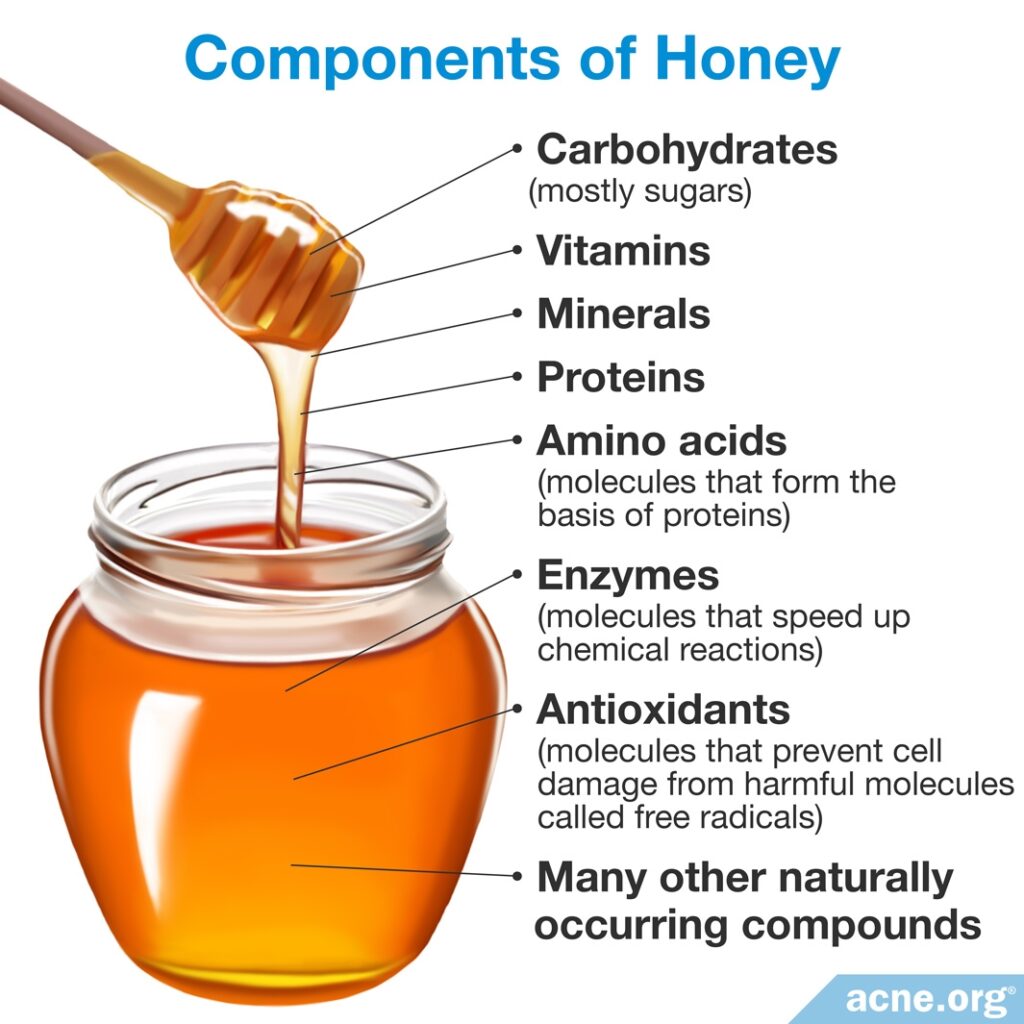
Honey is made by bees and contains about 200 substances, including:
- Carbohydrates (mostly sugars)
- Vitamins
- Minerals
- Proteins
- Amino acids (molecules that form the basis of proteins)
- Enzymes (molecules that speed up chemical reactions)
- Antioxidants (molecules that prevent cell damage from harmful molecules called free radicals)1
The makeup of honey is such that it has the following potential beneficial effects when it comes to acne:
- Antibacterial – acne is in part a bacterial disease
- Wound Healing – acne lesions are, medically speaking, small wounds
- Anti-inflammatory – acne is at its core an inflammatory disease
- Antioxidant – antioxidants kill free radicals, which are molecules that may contribute to acne
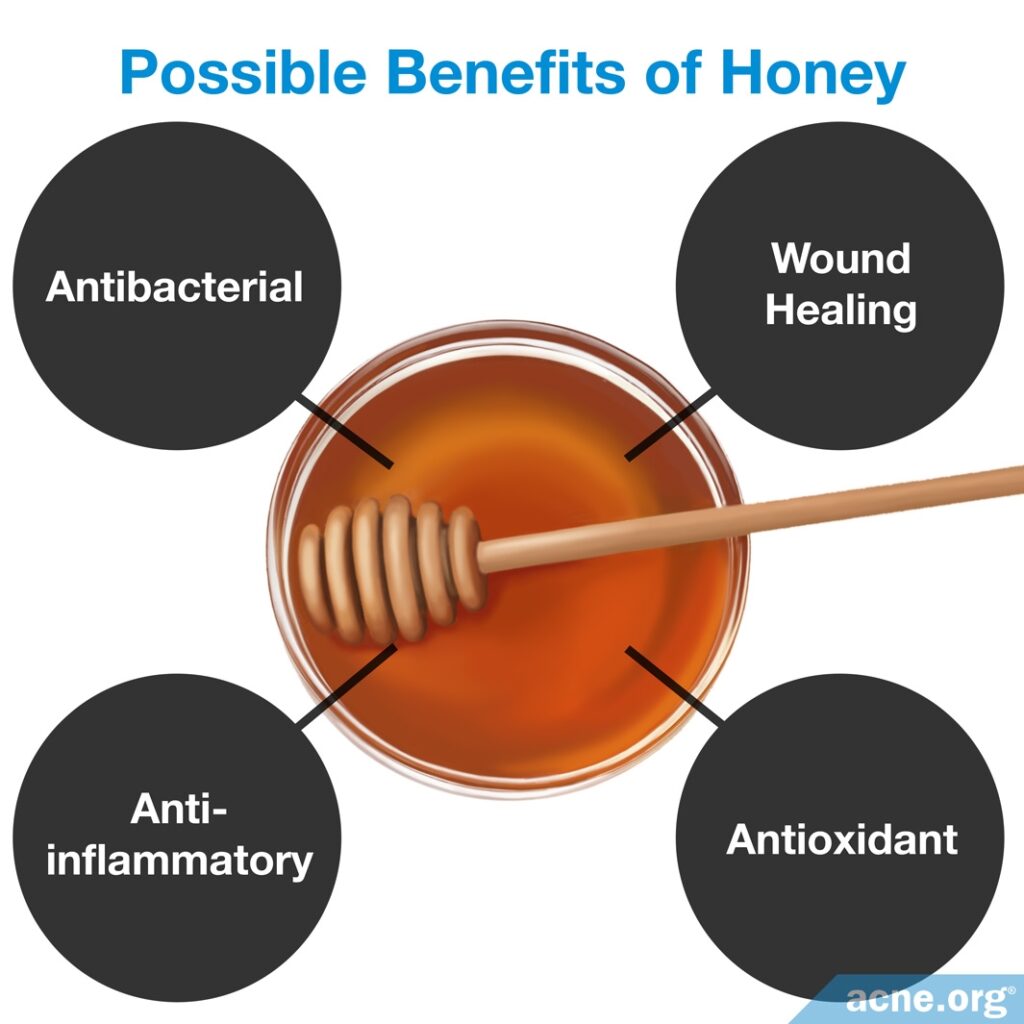
Let’s take a look at them one by one.
Antibacterial
All types of honey are antibacterial, so honey may kill acne bacteria.
Scientists believe that this effect is due primarily to honey’s hydrogen peroxide content. Hydrogen peroxide is a strong antibacterial compound that is sometimes used to treat acne. However, one type of honey called manuka honey contains no hydrogen peroxide, but is still antibacterial. Scientists theorize that antibacterial activity of manuka honey is due to its high acidity and high sugar content, as these conditions create an unsuitable environment for bacteria to thrive. But the bottom line is that all honey is antibacterial.2
Other compounds in all types of honey that also contribute to its antibacterial nature may include:
- Bee defensin-1: Recent research found that a variety of molecules, including a protein called bee defensin-1, “are distinct mechanisms involved in the bactericidal [bacteria-killing] activity of honey.”2
- Propolis: Some studies suggest that propolis, a natural resin that bees use to build their hives, might possess antibacterial effects.3
The antibacterial effects of honey are broad and affect many types of bacteria, which means there is a good chance that honey might also kill acne bacteria. According to a 2014 article in General Medicine – Open Access:
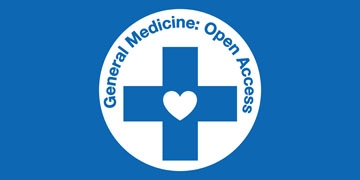
“[H]oneys have potent…bactericidal activity against antibiotic-resistant bacteria causing several life-threatening infections to humans. … [and] [c]urrently, many researchers have…found that natural unheated honey has some broad-spectrum antibacterial activity when tested against pathogenic bacteria, oral bacteria [and] food spoilage bacteria.”2
Indeed, one recent laboratory study did find that honey can block the growth of and even kill acne bacteria. Although this study tested the antibacterial activity of honey in a petri dish rather than on the skin of people with acne, it is another promising sign that honey might help with acne to some degree.4
Expand to read details of study
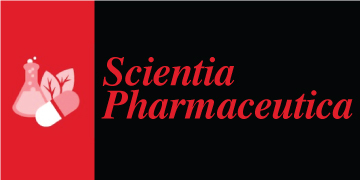
This study was published in the journal Scientia Pharmaceutica in 2017. The researchers tested whether honey, cinnamon extract, and the two together could block the growth or kill acne bacteria (C. acnes) and another type of skin bacteria (S. epidermidis) in a petri dish. The scientists found that both honey and cinnamon were effective against both types of bacteria and were even more effective when used together. In particular, when it came to C. acnes, a 50% concentration of honey was able to block the growth of these acne bacteria, while 100% undiluted honey was able to kill them.4 Although preliminary, these results are promising. A good next step may be to test whether honey can also kill acne bacteria in the skin pores of people with acne.
While natural honey varies in its bactericidal effects, some companies sell special formulations that are standardized in their levels of antibacterial activity.1,2 But in the real world, any honey you find should be at least somewhat antibacterial.
Wound Healing
Generally speaking, acne lesions are small wounds.
People have used honey since ancient times to accelerate wound healing. Modern research has explored honey as a treatment for ulcers, sores, burns, and other types of wounds. Honey’s wound-healing properties may be due to:
- Its antibacterial activity
- Its ability to moisten wounds, which promotes healing
- Its occlusive (ability to produce a protective barrier) nature
Honey also stimulates immune cells to release a protein called tumor necrosis factor (TNF), which stimulates growth of new tissue, thus aiding in wound repair. TNF also firms scar tissue, improving its appearance,2 which could be important for acne scarring.
So overall, honey helps accelerate this process in a variety of wounds, but when it comes to acne directly, as of today, there is no scientific evidence that honey is effective in healing acne lesions specifically.
Anti-inflammatory
Acne is an inflammatory disease. In people with acne, the skin produces multiple substances that contribute to inflammation:
- Prostaglandins: These are hormones produced at sites of skin infection or injury, including acne lesions.
- Cytokines: These are small proteins produced at any infection or injury site, including acne lesions.
Scientists believe that honey prevents inflammation by reducing the production of both of these types of substances. This anti-inflammatory activity of honey is mainly due to compounds called flavonoids and phenols.2,5,6
Since prostaglandins and cytokines play a significant role in inflammation, it is reasonable to hypothesize that honey might help reduce the inflammatory component of acne. However, no scientific evidence of this exists.
Antioxidant
Scientists have long suspected that a low level of antioxidants leads to at least some of the inflammation inherent to acne.
Honey contains antioxidants, including vitamin C, flavonoids, tocopherol, and reduced glutathione. Although these antioxidants exist in very small amounts in honey, they still might confer beneficial effects when applied to the skin.
Interestingly, there is a strong correlation between the color of honey and its antioxidant properties. Researchers have noticed that the darker the honey, the higher its antioxidant capacity.2 So, while still unproven, it may be best to use a darker honey when experimenting with topical honey for acne treatment.
One Study Gives Us Weak Evidence
There is only one study evaluating the effectiveness of topical honey on acne.7 The study found that only 7.6% of patients using a honey-containing antibacterial soap experienced significant improvement in their acne, which is less than impressive. The study also found that using the antibacterial soap without honey worked just as well as when honey was added to the soap.
However, as we will see, we can’t give this study much weight, because while it does have one big positive going for it, it has one huge negative as well:
The positive: It is a quality study called a randomized controlled trial, which is a type of rigorous study that provides the highest level of evidence.
The negative: Researchers did not test honey on its own. Instead, patients washed their skin with honey + antibacterial soap mixed together. This gives us little insight into whether applying honey alone as a honey mask would help with acne.
Expand to read details of study

In this 2016 study in the journal BMJ Open, researchers randomly assigned 136 acne patients between the ages of 16 and 40 years to receive one of two treatments: (1) an antibacterial soap and a product comprised of 90% medical grade honey and 10% glycerin or (2) the antibacterial soap alone. This study found that only 7.6% of the patients in group 1 experienced significant improvement in their acne. The researchers concluded that the combination of honey and antibacterial soap was no more effective in treating acne than antibacterial soap alone. They stated, “The results presented do not support a benefit of using honey in addition to a common over-the-counter antibacterial soap. This knowledge may inform both patients and clinicians when considering alternative therapies for acne.”7
This one study gives us very little evidence either way, but for what it’s worth, this study showed that the addition of honey did not make the antibacterial soap more effective.
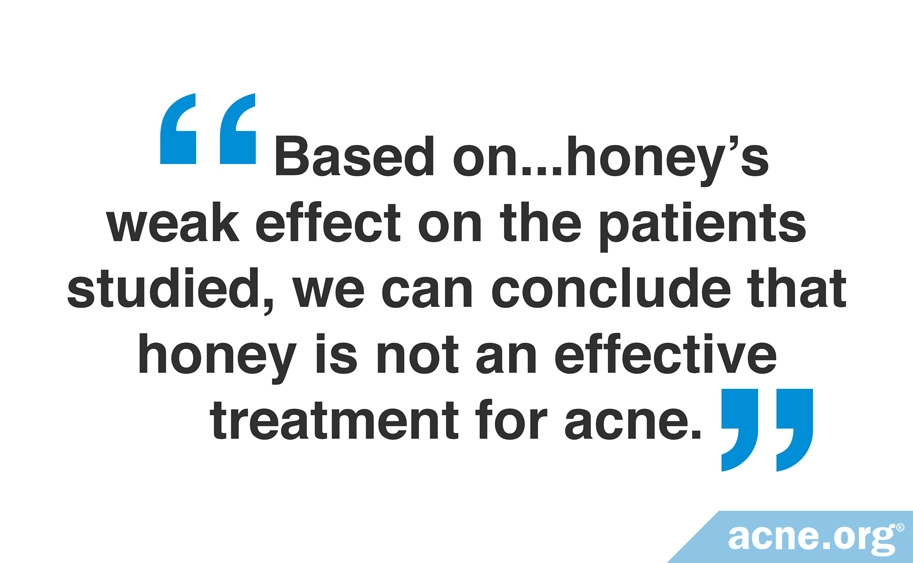
Side Effects
One reason that people might consider honey as an alternative acne treatment is that it has less side effects when compared to conventional acne treatments. The primary side effect of honey is temporary tingling when applied to the skin of some people.
Rare side effects include:
- Allergic reaction, especially if pollen or bee protein is present in the honey
- Skin dryness if too much is applied
- Wound infection due to bacterial spores8
The therapeutic components of honey and its low incidence of side effects make it a safe option for those who want a natural alternative to more traditional acne treatments, but in the real world, like most home remedies, it is unlikely to provide dramatic benefit.
How to Apply a Honey Mask
- Very gently wash your skin with only your bare hands, using a cleanser designed for sensitive facial skin
- Spread a thin layer of honey over the skin (approximately 1 tablespoon should do it) – choose a dark-colored honey if you can find one
- Rinse thoroughly with warm (not hot) water
- Very gently pat dry
References
- Da Silva, P. M., Gauche, C., Gonzaga, L. V., Costa, A. C. O. & Fett, R. Honey: Chemical composition, stability and authenticity. Food Chem. 196, 309 – 323 (2016). https://www.ncbi.nlm.nih.gov/pubmed/26593496
- Vallianou, N. G., Gounari P., Skourtis, A., Panagos, J. & Kazazis, C. Honey and its Anti-Inflammatory, Anti-Bacterial and Anti-Oxidant Properties. Gen. Med. Open Access 2, 1 – 5 (2014). https://www.longdom.org/open-access/honey-and-its-anti-inflammatory-anti-bacterial-and-anti-oxidant-2327-5146.1000132.pdf
- El Sakka, A., Abdulrhman, M. & Shehata, I. H. Comparison between topical application of Honey, Bees wax and Olive Oil Propolis extract and Nystatin for treatment of Diaper Dermatitis in Infants. Int. J. Paediatr. Child Health 1, 39 – 42 (2013). https://pdfs.semanticscholar.org/ed89/c1eaf477d0a1e93d11b0fec260b042375f1c.pdf
- Julianti, E., Rajah, K. K. & Fidrianny, I. Antibacterial activity of ethanolic extract of cinnamon bark, honey, and their combination effects against acne-causing bacteria. Sci Pharm. 85, 19-27 (2017). https://pubmed.ncbi.nlm.nih.gov/28398231/
- El-Seedi, H. R., Eid, N., Abd El-Wahed, A. A., Rateb, M. E., Afifi, H. S., Algethami, A. F., Zhao, C., Al Naggar, Y., Alsharif, S. M., Tahir, H. E., Xu, B., Wang, K. & Khalifa, S. A. M. Honey bee products: Preclinical and clinical studies of their anti-inflammatory and immunomodulatory properties. Front. Nutr. 3 (876), 1267 (2022). https://pubmed.ncbi.nlm.nih.gov/35047540/
- Ranneh, Y., Akim, A. M., Hamid, H. A., Khazaai, H., Fadel, A., Zakaria, Z. A., Albujja, M. & Bakar, M. F. A. Honey and its nutritional and anti-inflammatory value. BMC Complement. Med. Ther. 21, 30-47 (2021). https://pubmed.ncbi.nlm.nih.gov/33441127/
- Semprini, A., Braithwaite, I., Corin, A., Sheahan, D., Tofield, C., Helm, C., Montgomery, B., Fingleton, J., Weatherall, M. & Beasley, R. Randomised controlled trial of topical kanuka honey for the treatment of acne. BMJ Open. 6, e009448 (2016). https://www.ncbi.nlm.nih.gov/pubmed/26832428
- Eteraf-Oskouei, T. & Najafi, M. Traditional and modern uses of natural honey in human diseases: A review. Iran J. Basic Med. Sci. 16, 731 – 742 (2013). https://www.ncbi.nlm.nih.gov/pmc/articles/PMC3758027/
 Acne.org Products
Acne.org Products